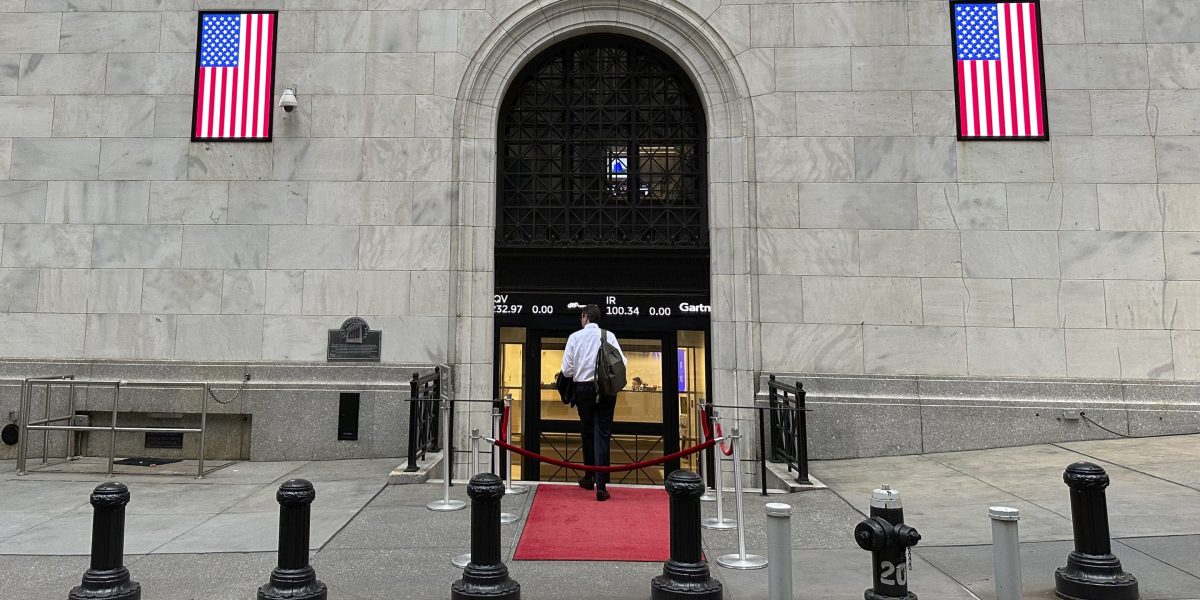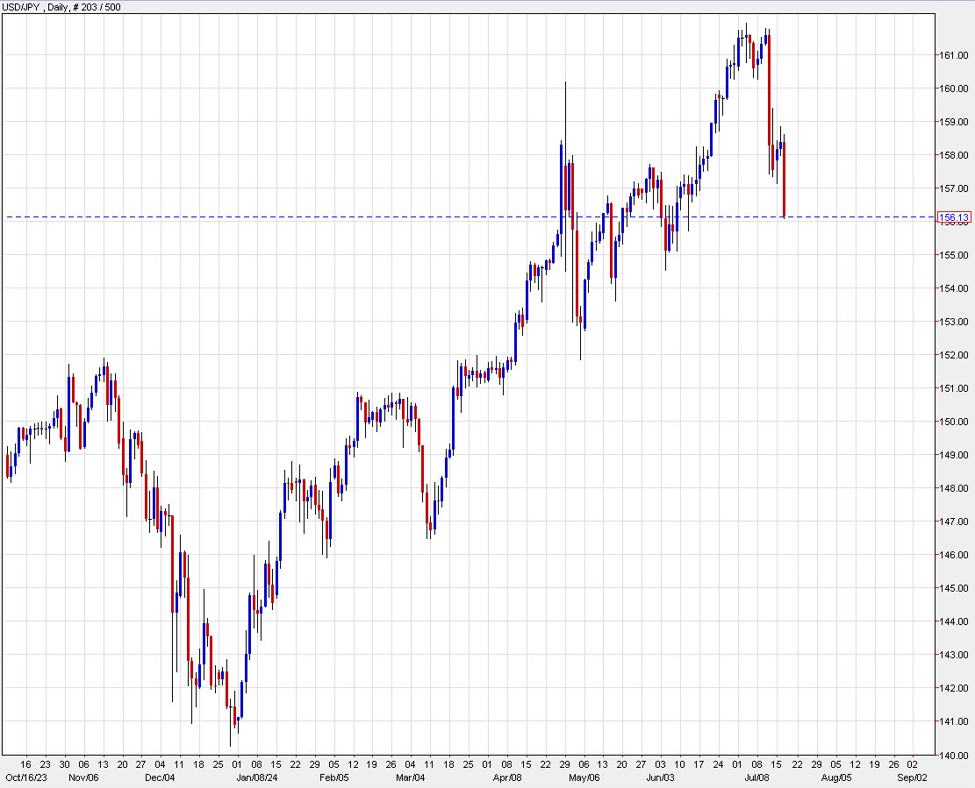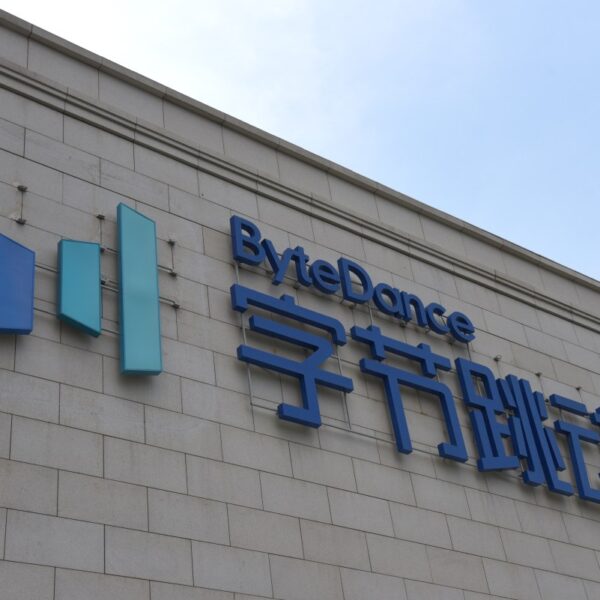
NEW YORK — Wall Street’s record-breaking rally is running into a wall Wednesday, as worries about potentially worsening trade tensions with China hit stocks of chip companies. That’s dragging indexes to their worst day in months, but conditions may be less discouraging underneath the surface.
The S&P 500 dropped 1.3% a day after it set an all-time high for the 38th time this year. The Nasdaq composite slumped 2.6% and was on track for its worst day since 2022, also weighed by losses for such market heavyweights as Nvidia and Apple.
But more stocks in the S&P 500 were still rising than falling, and the Dow Jones Industrial Average was adding 234 points, or 0.6%, to its record set a day earlier, as of 3:20 p.m. Eastern time.
The mix offers a continuation of a recent trend that market watchers have called encouraging, one where more stocks are rising rather than just a handful of overpowering elites. The smaller stocks in the Russell 2000 are coming off a big five-day winning streak on hopes that interest rates are about to get easier and the U.S. economy will avoid a recession, though the index fell 0.8% Thursday to give back some of those gains.
The market’s spotlight was squarely on chip companies, which tumbled after a report from Bloomberg News said President Joe Biden is considering the most severe trade restrictions available if companies like the Netherlands’ ASML and Japan’s Tokyo Electron continue to ship advanced semiconductor technology to China. The U.S. government has blocked Chinese access to advanced chips and the equipment to make them, citing security concerns, and urged its allies to follow suit.
ASML saw its stock trading in the United States drop 12.7% even though it reported sales for the spring that came in at the high end of its forecasted range. Shares of Tokyo Electron, meanwhile, dropped 7.5% in Tokyo to cull its gain for the year to 32.2%.
Another major chip company, Taiwan Semiconductor Manufacturing Co., sank after former President Donald Trump criticized the self-governed island claimed by Beijing, which the U.S. is obligated by treaty to defend if it is attacked.
“Taiwan should pay us for defense,” Trump said according to a transcript of an interview published by Bloomberg. “Taiwan took our chip business from us, I mean, how stupid are we?” he said.
TSMC’s stock trading in the United States dropped 7.3%.
Reverberations reached chip stocks around the world, including big U.S. players that have been some of Wall Street’s biggest stars this year amid a frenzy around artificial-intelligence technology. Nvidia fell 6.1% after soaring 155.2% this year through the day before.
Advanced Micro Devices fell 8.8%, and Broadcom dropped 7%.
Big Tech stocks’ movements have an outsized effect on indexes like the S&P 500, which give more weight to companies of bigger size. That was a boon in recent years, when a small group of companies known as “the Magnificent Seven” was able to soar almost regardless of what the overall economy and interest rates were doing. That helped mask weakness underneath the surface as the economy struggled through high interest rates meant to snuff out inflation.
Now, though, some critics call those Magnificent Seven stocks too expensive, and investors are creeping back into unloved areas of the market. The economy has remained remarkably resilient so far, with the job market remaining solid, and investors widely expect the Federal Reserve to begin cutting interest rates in September because inflation has slowed.
“Markets cannot continue indefinitely higher on the backs of just a handful of stocks,” said JJ Kinahan, CEO of IG North America.
Johnson & Johnson, whose stock had been down for the year so far, jumped 3.7% after topping analysts’ forecasts for profit in the latest quarter. It was one of the largest reasons the Dow Jones Industrial Average was able to rise despite falls for each of the Magnificent Seven stocks: Alphabet, Amazon, Apple, Meta Platforms, Microsoft, Nvidia and Tesla.
U.S. Bancorp, which has also lagged the rest of the market this year, rallied 4.4% after topping analysts’ forecasts for profit and revenue.
On the losing side of Wall Street was Five Below, a retailer targeting teens and tweens with products priced at $5 or below. It tumbled 24.3% after its CEO, Joel Anderson, stepped down from his job and from the board. It also gave a profit forecast for the second quarter that fell short of analysts’ expectations.
Spirit Airlines lost 11.4% after the discount carrier cut its forecast for revenue in the second quarter. It said it’s making fewer dollars than expected from fees outside of tickets.
In the bond market, the 10-year Treasury yield dipped to 4.15% from 4.16% late Tuesday.
In stock markets abroad, London’s FTSE 100 rose 0.3% after data showed the inflation rate remained steady at the Bank of England’s 2% target in June. Indexes were mixed elsewhere across Europe and Asia.















